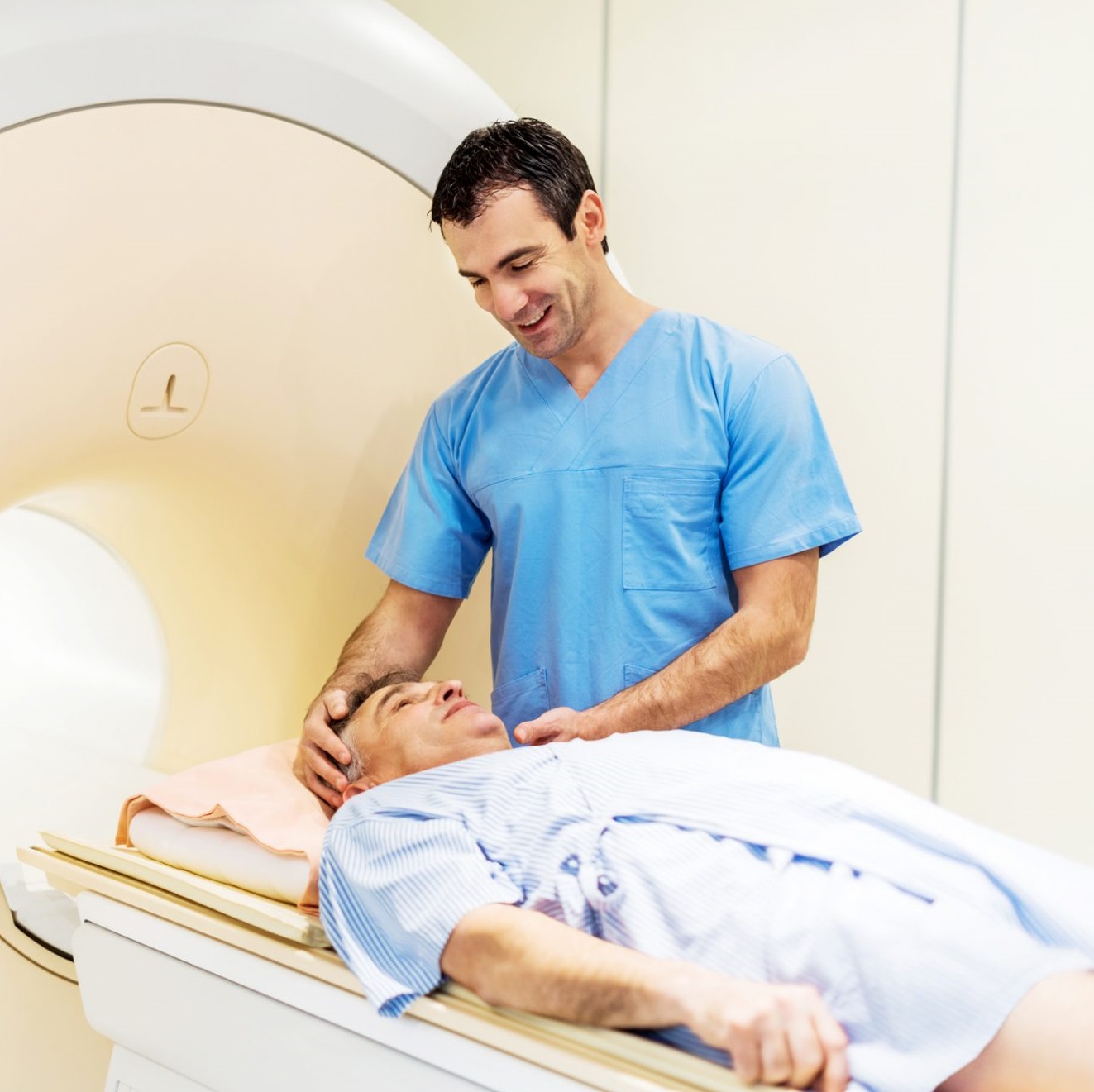

Proton Therapy: Advanced Cancer Treatment at Hackensack Meridian Health in New Jersey
Proton therapy is an advanced form of radiation therapy that uses energy from positively charged particles called protons to target and treat tumors. Unlike standard x-ray radiation, protons deliver radiation to a specific depth in the body and then stop, allowing for precise control. This ensures that most of the radiation is concentrated directly in the tumor, minimizing exposure to surrounding healthy tissues.
Compared to x-ray radiation, proton therapy reduces radiation to healthy tissue by up to 60%, making it particularly effective for tumors located near critical organs such as the brain, heart, or spinal cord.
Pencil Beam Scanning Proton Therapy
At Hackensack Meridian Health, we offer the most advanced form of proton therapy known as Pencil Beam Scanning (PBS) Proton Therapy. This technique uses an ultra-narrow proton beam to precisely "paint" the tumor with radiation, further minimizing exposure to healthy tissue and reducing the risk of side effects.Frequently Asked Questions
Our Radiation Oncologists
We have numerous radiation oncologists available throughout New Jersey.
Why Choose Us
At John Theurer Cancer Care, you can trust our team of over 1,200 doctors, nurses, researchers, and clinicians to provide you with highly specialized, innovative cancer care close to home, as recognized by U.S. News & World Report as the best cancer center in New Jersey and ranked nationally in cancer #44.
Patient Resources

What to Expect From Radiation Therapy
Understanding radiation therapy can help patients prepare and alleviate concerns.

What Is a Sarcoma?
Learn about sarcoma, a rare cancer affecting connective tissue. Understand diagnosis and treatment options. Get reliable information from Hackensack University Medical Center.

Something Special
Conquer cervical cancer. Amanda Tanay's story & expert care from Dr. ElSahwi at Jersey Shore University Medical Center. Find hope & support. Call 800-822-8905.

How to Form Your Cancer Care Team
Build your cancer care team. Learn about oncologists, surgeons, nurse navigators, and more. Get support and guidance for your journey.



